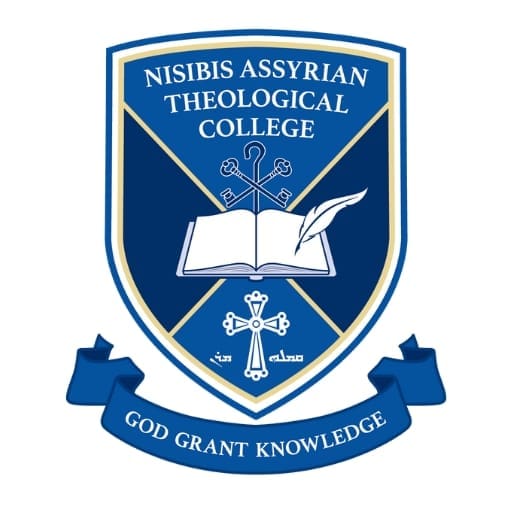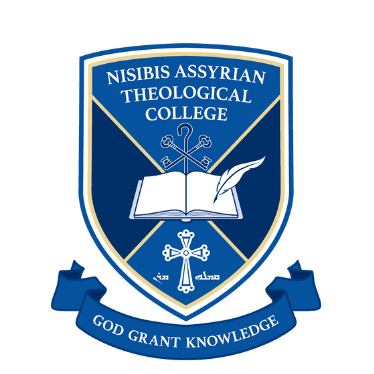Undergraduate Units
This course unit introduces students into the nature and tasks of theology, to theological methodology and to the theological distinctives of the Assyrian Church of the East. It provides a foundation for all future theology course units.
This Unit introduces students to academic research, essay writing and associated study skills.
This course unit introduces students to the critical study of the New Testament, its literary forms, historical and cultural contexts and theological themes. It provides a foundation for further biblical and theological study.
This course unit is an introduction to the sacramental life of the church.
This Course Unit introduces students to the basic elements of Syriac. It enables students to read Biblical texts with the use of dictionaries and grammars.
This course unit aims to introduce students to the literary forms, historical and cultural contexts and theological themes of the Old Testament. It seeks to provide a foundation for further biblical and theological study.
This course unit introduces students to the beliefs of the Christian tradition, enabling them to explore their faith within the context and shape of that tradition. It provides a foundation for all future theology course units.
This Course Unit extends Syriac Level 1 with regard to the basic elements of Syriac. It enables students to have basic grammatical and syntactical knowledge that will lead to a grasp of the Assyrian Christian writings.
This course unit introduces students to concepts, practices and traditions that provide a foundation for the study of Christian worship.
This Course Unit consolidates and builds on students’ knowledge of Biblical Hebrew. With a focus on the Peshitta, this unit provides the capacity to translate and understand Assyrian Christian writings.
This course unit is designed to provide students with an understanding of the person and saving work of Jesus Christ. It seeks to explore this understanding in the light of contemporary Christian thought and life.
This unit looks at the poetic and musical forms, the development, the theological and liturgical practices of hymnody in Assyrian worship.
This course unit engages the thought and methods of the early Church Fathers, in particular Assyrian Fathers, investigating the major trends in Christian tradition to early fifth century. It assists students to understand the connection between historical circumstances, the spiritual life and the formulation of Christian theology.
This course unit is designed to provide students with an overview and general understanding of the early centuries of Christian history.
This Course Unit follows on from Peshitta Studies 1. It further extends the students’ lexical and grammatical skills in translating and understanding Assyrian Christian writings.
This Course Unit builds on the Biblical Studies introductory units by investigating the principal literary, historical and theological features of the four Gospels through exegetical methodologies.
This unit explores the human, theological and ecclesial understandings of human sexuality, and their implications for personal relationships and Christian marriage.
This unit introduces students to theological reflection on the ethical aspects of Christian life and discipleship.
This course unit builds on the knowledge and skills developed in the prerequisite Biblical Studies units. It examines the historical context, literary forms and theological content of the New Testament literature associated with Paul.
This course unit builds on the Introduction to Worship with a particular focus on rites other than those of Christian initiation. It enables study the role of ritual, ceremony and rites in the church’s life.
This course unit builds on The Sacraments and provides a more focused and detailed study of particular sacraments.
This unit engages students with the question of what human beings are – a question central to both philosophy and theology. It considers major past and present philosophical approaches to being human, and develops an account of human persons as unified psychosomatic beings whose nature is open to the transcendent.
This course unit develops a comprehensive introduction to, and overview of, the topic of Christian Spirituality focussing on its biblical, theological and historical premises and practice from a denominational perspective.
This unit is an overview of the Assyrian Church in the modern era.

Graduate Units
This graduate course unit introduces students to the nature and tasks of theology and to theological method. It provides a foundation for all future theology course units.
This Unit introduces students to academic research, essay writing and associated study skills.
This course unit introduces students to the critical study of the New Testament, its literary forms, historical and cultural contexts and theological themes. It provides a solid foundation for further biblical and theological study.
This graduate course unit aims to develop a basic pattern for sacramental life and show its application in the individual sacraments.
This graduate course unit introduces students to the Bible, its content, context and literary genres and to the methodologies of biblical reading, study and interpretation. It provides the basis for further study of the Biblical texts.
This Course Unit introduces students to the basic elements of Syriac. It enables students to read Biblical texts with the use of dictionaries and grammars.
This graduate course unit introduces students to the beliefs of a Christian tradition, enabling them to explore their faith within the context and shape of that tradition. It provides a foundation for all future theology course units.
This Course Unit extends Syriac Level 1 with regard to the basic elements of Syriac. It enables students to have basic grammatical and syntactical knowledge that will lead to a grasp of the Assyrian Christian writings.
This graduate course unit offers a student, either under supervision or in a class setting, to comprehensively and critically explore chosen themes or schools of the Christian Tradition. The selection may be historical writers, particular historical periods within the Tradition or contemporary expressions of the Christian spirituality pathway.
This graduate course unit introduces students to concepts, practices and traditions that provide a foundation for the study of Christian worship.
This graduate course unit engages the main themes and characteristics of Patristic tradition, which it examines within their historical context and from a comparative perspective. It assists students to appreciate the significance of various trends in traditional theology and spirituality for the general Christian experience.
This graduate course unit is designed to provide students with a foundational knowledge of the person and saving work of Jesus Christ. It also explores the relevance of this understanding in the light of contemporary Christian thought and discipleship.
This course unit builds on Theology of the Sacraments and provides a more focused and detailed study of particular sacraments.
This course unit is designed to provide students with an overview of the early centuries of Christian history. It will furthermore equip them with the critical tools necessary in order to understand historical phenomena and circumstances related to the early Church.
This unit looks at the poetic and musical forms, the development, the theological and liturgical practices of hymnody in Assyrian worship.
This unit introduces students to theological reflection on the ethical aspects of Christian life and discipleship. It also provides the graduate student with a methodological basis for further studies in Christian ethics.
The course unit enables students to study the two volume work Luke-Acts which encompasses a gospel and an early Christian theological history.
This course unit builds upon the knowledge and skills learned in the pre-requisite units. It examines the historical context, literary forms and theological content of the Gospel according to John, their application to Christian worship, teaching and spirituality.
This course unit builds on the knowledge and skills developed in the prerequisite Biblical Studies units. It examines the historical context, literary forms and theological content of the New Testament literature associated with Paul.
This graduate course unit aims to develop students’ understanding of principles underlying ministry to children and their capacity to apply them in a range of practical settings.
This unit provides an advanced study of the ethical issues arising in the contemporary experience of marriage and personal relationships. Historical, sociological and theological insights will provide a context for examining Christian responses to family life today.
This Course Unit consolidates and builds on students’ knowledge of Biblical Hebrew. With a focus on the Peshitta, this unit provides the capacity to translate and understand Assyrian Christian writings.
This Course Unit follows on from Peshitta Studies 1. It further extends the students’ lexical and grammatical skills in translating and understanding Assyrian Christian writings.
This graduate course unit examines worship in varying developmental, social and cultural contexts.
This unit engages students with the question of what human beings are – a question central to both philosophy and theology. It considers major past and present philosophical approaches to being human, and develops an account of human persons as unified psychosomatic beings whose nature is open to the transcendent.
This unit is an overview of the Assyrian Church in the modern era.


